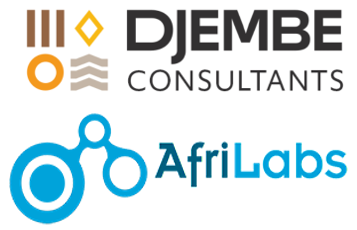Report Provides Rich Perspectives from Scaling Innovations and Entrepreneurship, to Transforming Education Towards a Skills-based Model of Collaborative Learning and Powerful Calls for Policy Enhancements to Help Women and Youth in the Informal Sector
Djembe Consultants, the award-winning Africa-focused communications consultancy, today launched its latest Insights Report in partnership with AfriLabs, the largest pan-African network of technology and innovation centers. The report assesses the impact of COVID-19 on the continent’s young innovators and entrepreneurs and provides perspectives from industry experts as to how African decision makers from both the public and private sectors can accelerate support across the full innovation spectrum including education, inclusivity, investment, policy and research and development. The report was launched during a panel discussion at the virtual 5th AfriLabs Annual Gathering.
Entitled Building a Resilient Innovative Africa, the report is a result of a survey of over 1,000 pan-African innovators, entrepreneurs, and start-ups from both Djembe’s and AfriLabs’ vast innovation and entrepreneurship networks. Framed within the context of key milestones for the continent, including the impending African Free Trade Continental Area (AfCFTA), UN SDGs, and the African Union Agenda 2063, the report also brings together the expert perspectives of individuals from some of the continent’s leading development and private sector organizations including the African Union, African Development Bank, Afreximbank, Honoris United Universities, Mastercard Foundation, Mozilla, SMART Africa, and UN Women amongst others. It features unique insights from regional innovations hubs as well as celebrates inspiring African homegrown innovation success stories.
Djembe Consultants’ Chief Executive Officer, Mitchell Prather, commented, “Djembe’s latest Insights Report reaffirms our strongly held belief that the African innovation ecosystem is singularly the most important enabler of widespread socio-economic development. Despite the innate resilience African innovators and SMEs have shown during this challenging year, this ecosystem urgently needs further intervention of policymakers and industry supporters to create a more conducive environment for innovators and SMEs to survive and thrive. While the uncertainties of COVID-19 continue to threaten economic stability and growth, future economic prosperity can be greatly enhanced by nurturing the African innovation spirit to prepare the continent for incredible success, just when it needs it most.”
Anna Ekeledo, Executive Director at AfriLabs and contributor to the report, added, “The continent’s survival DNA, always durable to internal and external shocks of all shapes and forms, proves a resilience in its youthful demographic, one that is constantly creating, innovating, and looking ahead. Though we are have observed policymakers and governments step up to varying degrees, more needs to be done to drive greater innovation inclusivity from securing access to data, to reimagining education, investing in R&D and supporting international expansion. By building a more resilient innovative Africa, the region can truly embrace its full potential.”
Scaling Homegrown Innovations Beyond Borders
- Majority of the entrepreneurs (90%) are likely to need to or be able to scale their business in the wake of COVID-19
- 74% say they are currently exploring the possibility of entering international markets
- 51% indicate that while they are aware of state support, they find this support to be inadequate in meeting their current business scaling needs
- Majority of innovators and startups (42%) see innovation hubs as potential platforms to access funding, followed by networking opportunities, capacity building and R&D
Strengthening Policy Development to Encourage R&D and Innovation
Investor funding is the number one issue governments must address to build innovation resilience. This is followed by fostering entrepreneurship and eradicating corruption
Driving Innovation Inclusivity – Women, Youth, and Informal Markets
- Majority of entrepreneurs (45%) feel that the creation of expanded market opportunities for homegrown businesses is the main key driver of innovation inclusivity. This is followed by the provision of support services and the curation of capacity development programs to address the unique challenges of operating in the informal markets are key to driving innovation inclusivity on the continent
- A high proportion of respondents (41%) do not feel there is enough support from the private and public sector to drive greater inclusivity within hubs and the wider innovation ecosystem
The full report can be accessed online here (https://bit.ly/33Q2o4v).
Djembe Consultants was recently appointed as the Official Communications Partner for AfriLabs and will be developing customised training workshops for AfriLabs’ community members and partner hubs across the continent.










